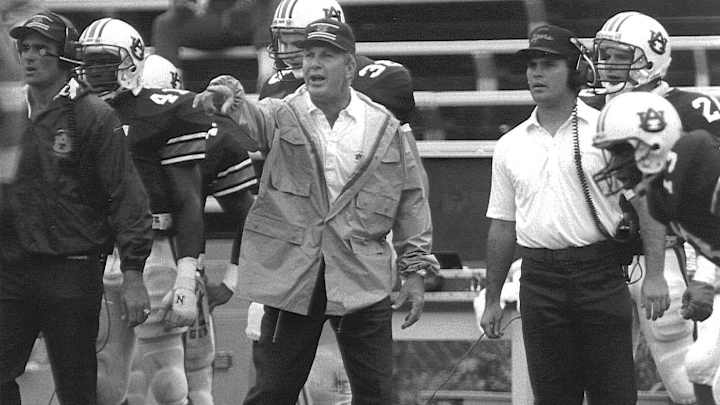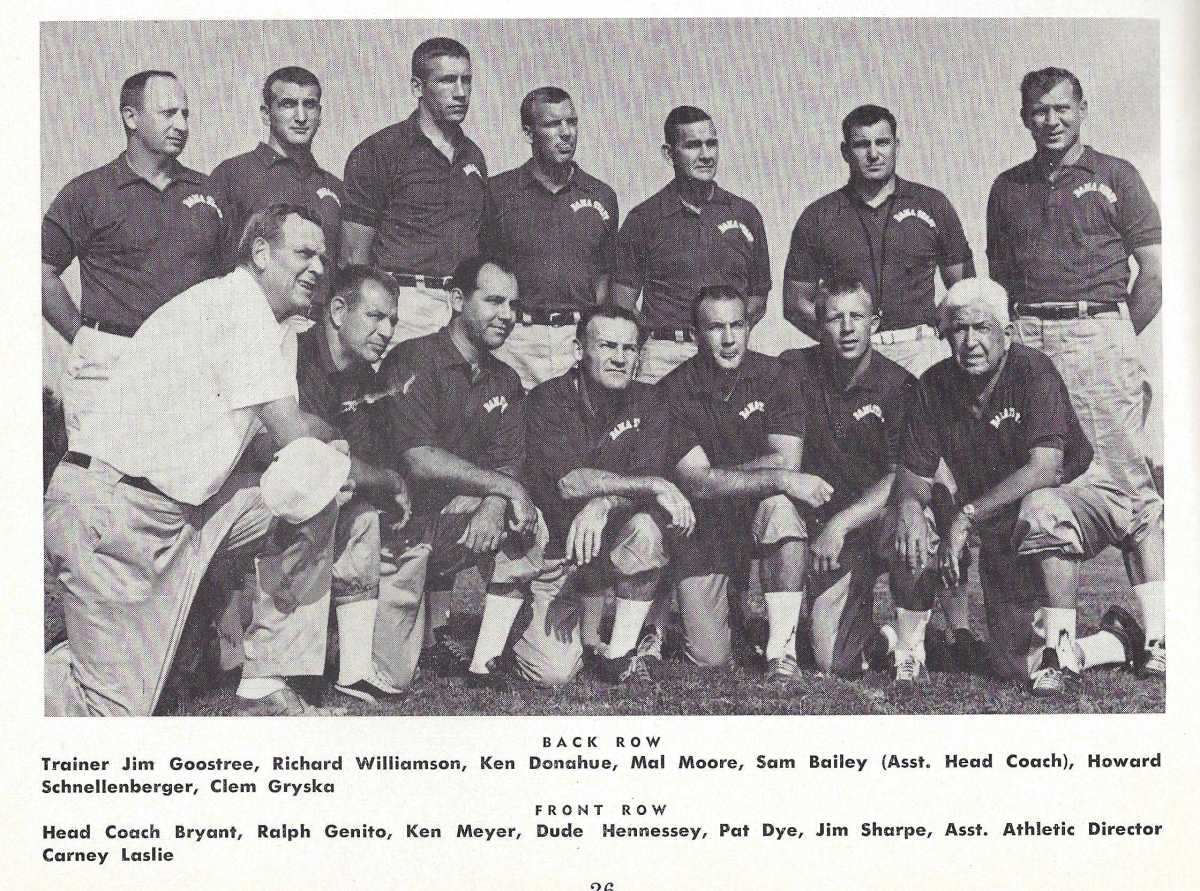Hall of Fame Coach Pat Dye Passes Away at 80

Former Auburn head coach Pat Dye passed away on Monday in Auburn. He was 80 years old.
247Sports was the first to report the news.
Dye had recently been diagnosed with the coronavirus while being hospitalized in Atlanta with kidney issues, but his son Pat Dye Jr. told ESPN that Dye remained asymptomatic.
Dye served the coach of the Tigers from 1981-1992 and accounted for a 99-39-4 overall record and four SEC titles. In addition to recruiting running back Bo Jackson to Auburn. He defined the modern era of Auburn football, and helped rebuild a football culture for a program that had not seen a conference championship in over two decades.
Dye started his coaching career at Alabama under coach Paul 'Bear' Bryant in 1965, serving as an assistant coach in charge of linebackers as well as the staff recruiting coordinator. By the time he left the Crimson Tide in 1973, Dye was responsible for four All-Americans.
After beginning his tenure at Auburn, Dye set into motion plans to shift the Iron Bowl from its location in Birmingham to instead alternate locations between The Plains and Tuscaloosa.
“When I saw coach Bryant when I first got to Auburn, the first thing he said to me —very first thing — he said, ‘Well, I guess you’re going to want to take that game to Auburn,’” Dye told AL.com in 2019. “I said, ‘We’re going to take it to Auburn.’
“He said, ‘Well, we’ve got a contract through '88.' I said, ‘Well, we’ll play ’89 in Auburn.’”
In the wake of Dye's passing, Alabama coach Nick Saban released a statement offering his condolences:
“I’ve known and respected Pat Dye for many years, and he always represented college football with tremendous class and integrity," Saban's statement read. "He was an outstanding teacher and coach who affected our game in many significant ways. We are saddened to hear of his passing and our thoughts and prayers are with his family, friends, co-workers and all of the players he had such a positive impact on throughout his distinguished career.”
Dye was inducted into the College Football Hall of Fame in 2005.

